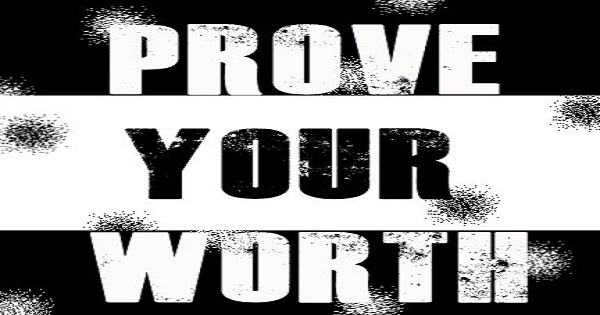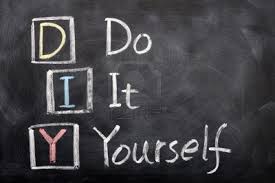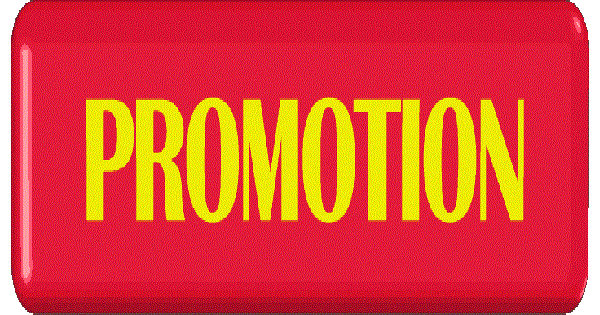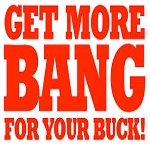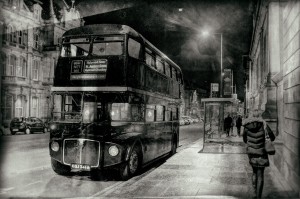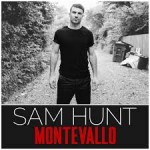We are constantly hearing comments from up and coming indie artists like “I just need to get my deal [and then I’ll be successful]†or “If I could just get in front of the right person, I know I could be successful.†I got news for you, the record business doesn’t work like that anymore. These days it’s simply not enough to have talent, you have to PROVE that you’re worth it.
You have to PROVE that your art has value in the marketplace.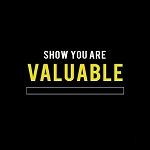
In other words you have to create success for yourself before anyone of value or power will believe that you can generate revenue for them.
Do you see the naïveté in those comments?
You cannot intelligently approach this dream of yours thinking that someone else is going to make you a star.
Record labels are no longer developing artists, they are now buying small business and turning them into big businesses.
The Daredevil Production, LLC business model is built around this fact. Kelly and I develop artists artistically and in the marketplace to help them become small profitable businesses so they will be more attractive to the big money players.
You can’t build your business model around a 20 year old music business model. Yes, there are exceptions to the rule.
- What intelligent business model is built around exceptions to the rule (A.K.A. winning the lottery)?
- If you did win you would actually lose because your deal would suck so bad you might end up being a broke country star.
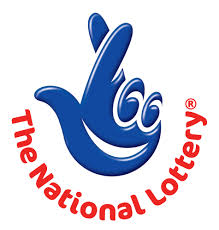 FYI, there were plenty of broke rock stars in the 80’s and it wasn’t because they were bad with money, it’s because they were rock stars making $400/week.
FYI, there were plenty of broke rock stars in the 80’s and it wasn’t because they were bad with money, it’s because they were rock stars making $400/week.
Pretty sad, huh?
Do you want your deal to look like this?
I got more news for you, even in the heyday of the record business, the “easiest†record deals came to the derivative acts. The acts that were signed simply because the labels saw some quick money to be made with an artist that could capture a little ![]() market overflow from a lane forged by an iconic trailblazer.
market overflow from a lane forged by an iconic trailblazer.
The game-changers, the icons we know today HAD TO PROVE THEIR VALUE IN THE MARKETPLACE because they were so different.
The story hasn’t changed much.
This statement is relative to every decade in the music business.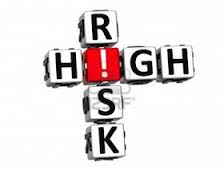
No one wants to sign something that is different from what is happening right now on terrestrial radio because it’s too risky.
How do they know if the market will like it?
If a genre or artistic lane is getting a lot of love on terrestrial radio (like “bro-country†for instance) there is proof that the style is popular in the marketplace and therefore money to be made.
If you are different or new, in any decade, YOU would need to provide evidence that even though terrestrial radio is currently not playing your style, your music has VALUE in the marketplace.
You are going to have to do this yourself.
Here are 20 artists who had to prove their music had value to get their record deals.
- Mötley Crüe – Nobody wanted to sign Mötley Crüe. They were too weird. They created their own record label
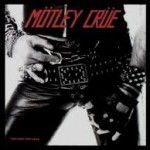 Leathür Records and self-released Too Fast for Love. Mötley’s local popularity was so huge in 1981 that they sold 40,000 copies in Los Angeles alone. FYI the wiki link says 20k but I’m pretty sure my sources are more accurate. ;) These sales led to an Elektra Records deal in late 1982 where they remixed the Crüe’s debut record and re-released it. Mötley Crüe incarnated the glam-metal-hair-band genre of the 80’s. Thank you fellas!
Leathür Records and self-released Too Fast for Love. Mötley’s local popularity was so huge in 1981 that they sold 40,000 copies in Los Angeles alone. FYI the wiki link says 20k but I’m pretty sure my sources are more accurate. ;) These sales led to an Elektra Records deal in late 1982 where they remixed the Crüe’s debut record and re-released it. Mötley Crüe incarnated the glam-metal-hair-band genre of the 80’s. Thank you fellas! - Ratt – Since 1976 many self-financed singles, records, and live show recordings were being distributed to galvanize Ratt’s (previously Mickey Ratt) LA club following. This led to a
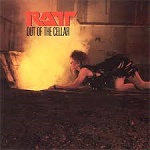 meager indie record deal where they released the Ratt EP in 1983. After 20,000 units sold that was enough to convince Atlantic Records that they had value. Atlantic released their debut full length record entitled Out of the Cellar in 1984.
meager indie record deal where they released the Ratt EP in 1983. After 20,000 units sold that was enough to convince Atlantic Records that they had value. Atlantic released their debut full length record entitled Out of the Cellar in 1984. - Bon Jovi – Jon worked at a shoe store while mopping floors at The Power Station Studios in NYC where he was granted access to the storied recording facility after hours. When did he sleep? He recorded 50 + demos of
 “Runaway”(one was produced by Billy Squier) and shopped them to the labels. Nobody cared. At the time, Jon was also WORKING for WAPP “The Apple†writing and singing jingles. DJ Chip Hobart asked Jon to include “Runaway” on a compilation record for the station (a move Jon was very apprehensive about) and that single became a huge “local†hit. Local was NYC which was the #1 market in the country and that was enough proof to entice A&R rep Derek Shulman to sign Jon to Mercury Records.
“Runaway”(one was produced by Billy Squier) and shopped them to the labels. Nobody cared. At the time, Jon was also WORKING for WAPP “The Apple†writing and singing jingles. DJ Chip Hobart asked Jon to include “Runaway” on a compilation record for the station (a move Jon was very apprehensive about) and that single became a huge “local†hit. Local was NYC which was the #1 market in the country and that was enough proof to entice A&R rep Derek Shulman to sign Jon to Mercury Records. - Skid Row – The first Skid Row record was written by Jon Bon Jovi, Richie Sambora, and
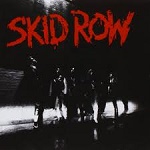 Jack Ponti. Skid Row band members Dave Sabo and Rachel Bolan were listed as writers for the purposes of street cred which was mission critical to hair metal bands of the 80’s. This record was entirely created and funded by Jon Bon Jovi after the Slippery When Wet album tour was finished. He had proven his skills had value in the marketplace. Even with all that power behind him (Bon Jovi was probably one of the top 3 acts in the country at that time), and the record completed, Jason Flom from Atlantic Records wouldn’t give Skid Row a deal until Bon Jovi agreed in writing to allow Skid Row to open every date on the upcoming New Jersey World Tour. After that contract was signed guaranteeing massive exposure for the band, Flom gave them a $1,000,000 cash advance.
Jack Ponti. Skid Row band members Dave Sabo and Rachel Bolan were listed as writers for the purposes of street cred which was mission critical to hair metal bands of the 80’s. This record was entirely created and funded by Jon Bon Jovi after the Slippery When Wet album tour was finished. He had proven his skills had value in the marketplace. Even with all that power behind him (Bon Jovi was probably one of the top 3 acts in the country at that time), and the record completed, Jason Flom from Atlantic Records wouldn’t give Skid Row a deal until Bon Jovi agreed in writing to allow Skid Row to open every date on the upcoming New Jersey World Tour. After that contract was signed guaranteeing massive exposure for the band, Flom gave them a $1,000,000 cash advance. - Florida Georgia Line – FGL was developed by one of the most powerful and successful Nashville songwriters, Craig Wiseman. They were produced by multi-platinum engineer/producer Joey Moi. All this power and marquis
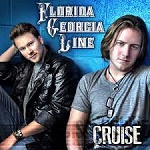 value and every label still said “NOâ€; they were too different. They STILL had to prove they had value. They exercised a relationship on satellite radio where “Cruise†became a smash hit. Then they orchestrated an 8 month tour to support the single (privately financed) where they succeeded in selling 100,000 downloads of the single. The record didn’t change, the songs didn’t change, and the production didn’t change. The only thing that changed was the perception. Every label then said “YES†and they signed with Scott Borchetta’s Republic Nashville label under the Big Machine umbrella.
value and every label still said “NOâ€; they were too different. They STILL had to prove they had value. They exercised a relationship on satellite radio where “Cruise†became a smash hit. Then they orchestrated an 8 month tour to support the single (privately financed) where they succeeded in selling 100,000 downloads of the single. The record didn’t change, the songs didn’t change, and the production didn’t change. The only thing that changed was the perception. Every label then said “YES†and they signed with Scott Borchetta’s Republic Nashville label under the Big Machine umbrella. - Zac Brown Band – Zac had been touring over 200 dates a year with an acoustic trio
 since 2002. Constantly writing and recording and shopping to record labels. They were “too pop†for all the country labels and “too country†for all the pop labels. While Zac was touring they were selling records, tickets and merch. They managed a small profitable ZBB business for 10 years which was enough proof to garner one of the sweetest deals in town which is really a Joint Venture between Zac’s own Southern Ground (formerly Home Grown) label imprint
since 2002. Constantly writing and recording and shopping to record labels. They were “too pop†for all the country labels and “too country†for all the pop labels. While Zac was touring they were selling records, tickets and merch. They managed a small profitable ZBB business for 10 years which was enough proof to garner one of the sweetest deals in town which is really a Joint Venture between Zac’s own Southern Ground (formerly Home Grown) label imprint 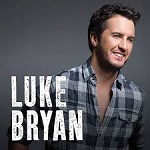 and Atlantic Records.
and Atlantic Records. - Luke Bryan – reached success as a songwriter to prove his music had value. He penned the title track to Travis Tritt’s 2004 release My Honky Tonk History. Which helped him get a deal with Capitol Records. Here’s the thing, while he was working on his debut album he managed to co-write Billy Currington’s #1 single “Good Directions†which certainly helped when it came time for the label to allocate promotional funds for Bryan’s debut record.
- Brantley Gilbert – Proved his music had value in marketplace by writing hit songs first.
 He had cuts like “The Best of Me†on Jason Aldean’s 2009 release Wide Open. This resulted in an indie record deal where he released his debut record that included “My Kinda Party†which became a #1 after it was re-recorded by Jason Aldean for his 2010 release of the same name. Brantley’s 2nd #1 was “Dirt Road Anthem†co-written by country rap artist Colt Ford. This effort led to Brantley’s deal on Scott Borchetta’s Valory label and insured proper attention to Brantley’s releases once he got his shot.
He had cuts like “The Best of Me†on Jason Aldean’s 2009 release Wide Open. This resulted in an indie record deal where he released his debut record that included “My Kinda Party†which became a #1 after it was re-recorded by Jason Aldean for his 2010 release of the same name. Brantley’s 2nd #1 was “Dirt Road Anthem†co-written by country rap artist Colt Ford. This effort led to Brantley’s deal on Scott Borchetta’s Valory label and insured proper attention to Brantley’s releases once he got his shot. - Chase Rice – He co-wrote one of the biggest hits of the last 5 years “Cruise†by Florida Georgia Line. BIG time proof his music has value. Now he has a deal and a gold single with “Ready, Set, Rollâ€.
- Sam Hunt – He penned Kenny Chesney’s “Come Overâ€, Keith Urban’s “Cop Carâ€, and Billy Currington’s “We Are Tonight†before independently releasing his own single. This led to a major label deal with MCA Nashville and his current #1 single “Leave the Night Onâ€.
- Cole Swindell – wrote these songs to prove his music had value. Then he independently released “Chillin’ It†and THEN he got his deal with Warner Bros.
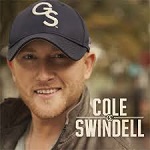
- Craig Campbell’s “Outta My Headâ€
- Luke Bryan’s “Just a Sip”, “Beer in the Headlights”, “Roller Coasterâ€, “Out Like That”, “I’m Hungover”, “I’m in Love with the Girl”, “Love in a College Town”, “Shore Thing”, “Shake the Sand” and “The Sand I Brought to the Beach”
- Thomas Rhett’s “Get Me Some of Thatâ€
- Scotty McCreery’s “Water Tower Town” and “Carolina Eyes”
- He also co-wrote Florida Georgia Line’s “This is How We Roll†with Luke Bryan
- Lee Brice – Co-wrote Garth Brooks 2007 single “More Than a Memory†which was the first single in the history of the Billboard Hot Country Songs chart to debut at #1. He also signed his artist deal with Curb Records the same year. Coincidence?
- Ani DeFranco – Ani has been independent all along. She started her own label Righteous Babe Records at the age of
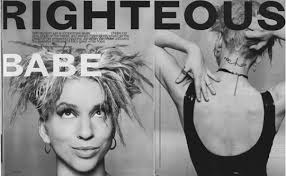 18. She recorded everything on her own with an 8-track reel to reel and toured her ass off. She put out 5 records from 1990-1994 before partnering with Koch International to distribute her 6th independent release Not a Pretty Girl. Who knows how many major label deals she has turned down?
18. She recorded everything on her own with an 8-track reel to reel and toured her ass off. She put out 5 records from 1990-1994 before partnering with Koch International to distribute her 6th independent release Not a Pretty Girl. Who knows how many major label deals she has turned down? - Granger Smith / Earl Dibbles Jr. – These are both the same person. By independently writing, recording, and releasing records Granger Smith has utilized social media to create an empire that generates over $1.5 million dollars per year in revenue. This activity created the college football picks on-air position Earl Dibbles Jr. holds every Saturday with CBS.
- Jamey Johnson – He co-wrote the huge Trace Adkins hit “Honky Tonk Badonkadonk†which garnered him a deal with BNA Records in 2005.
- Randy Houser – Co-wrote “Honky Tonk Badonkadonk†with Jamey Johnson and Dallas Davidson for Trace Adkins in 2005. That proof of value led to a major label deal in 2008.
- Karmin – Proved that her talent had value in the marketplace by posting consistent YouTube videos of cover songs.
 The breakthrough was her cover of “Look at Me Now†by Chris Brown, Lil’ Wayne, and Busta Rhymes. That video currently has over 93 million views and led to a record deal and a solid fan base.
The breakthrough was her cover of “Look at Me Now†by Chris Brown, Lil’ Wayne, and Busta Rhymes. That video currently has over 93 million views and led to a record deal and a solid fan base. - Macklemore and Ryan Lewis – Are the first duo in the history of the Billboard Hot 100 chart to have their first 2 singles go to #1, both without the support of a major label. The duo accumulated 613 million views of their video for “Thrift Shop†on YouTube. They currently have over 1.3 million subscribers on their YouTube channel.
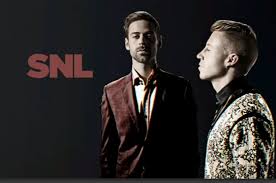
- Noah – Posted a cover that he creatively manipulated to his own artistic lane on YouTube for 77 weeks in a row. He built a steadily growing subscribership until the 77th video which was this version of LMFAO’s “Sexy and I Know Itâ€. This video blew up and went viral. Around 2 million views he started monetizing it. Around 6 million views, he implemented a pop-up to direct viewers to his IndieGoGo crowdfunding campaign where he was able to procure $100,000 for his first record. He now has over 22 million views and a solid career.
- Thomas Rhett – is the son of hit singer songwriter Rhett Akins.
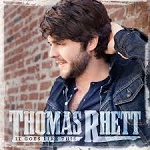 Still, it took until he wrote “I Ain’t Ready to Quit†which was cut by Jason Aldean for his My Kinda Party album to prove his music had value in the market place which resulted a major label deal.
Still, it took until he wrote “I Ain’t Ready to Quit†which was cut by Jason Aldean for his My Kinda Party album to prove his music had value in the market place which resulted a major label deal.
All these hit artists had to PROVE that their music was valuable BEFORE they got their deals or continue to prosper independent of major deals.
Nobody is going to come to your door and make you a star.
Nobody is going to risk their money on what you plan to do.
Major labels and big private money investors will only invest in your career based on your reputation.
You can only have a reputation based on what you have done, NOT what you are going to do.
Stay in tune.
If you like this post, please SHARE it and/or LEAVE A COMMENT thank you!
[ois skin=”Bottom Post”]

